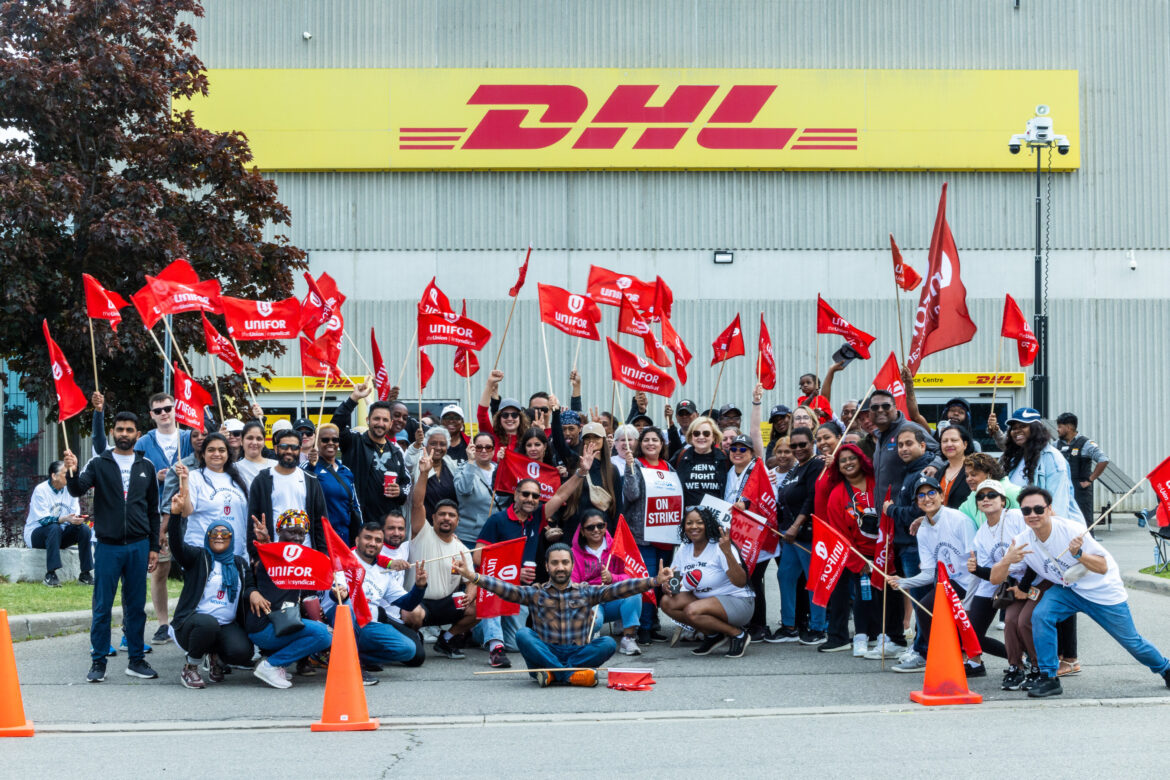520

Unifor has responded to a brazen attempt by DHL Express Canada to circumvent new federal labour laws. The company sent a letter to the federal government requesting a special exception from the ramifications of Bill C-58, the anti-scab legislation that comes into effect on Friday. (CNW Group/Unifor)




